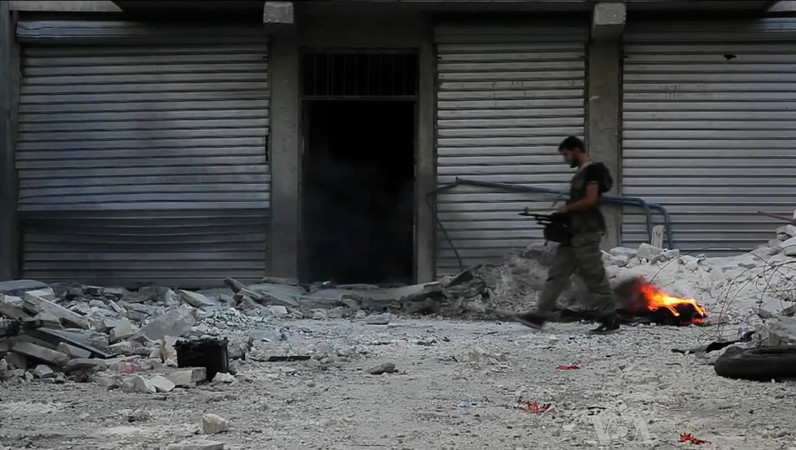Industrialized Killing: Accountability and Justice for Syria
July 21, 2015
Chautauqua Institution will host David M. Crane, Robert H. Jackson Center Board Chair and the former Chief Prosecutor for Special Court for Sierra Leone David Crane, for a lecture on industrialized killing and the Syrian Crisis. The Lecture will take place Tuesday July 21st, 2015 3:30 p.m. at the Hall of Christ, Chautauqua Institution.
David M. Crane, former Chief Prosecutor for the Special Court for Sierra Leone (2002-2005) has worked to gain and provide support to Syria. In conjunction with Syracuse University College of Law students, Crane heads the Syrian Accountability Project (SAP). Crane and SAP work with several international organizations to provide impartial analysis of open source materials. The goal of these collaborations is to fairly prosecute President al-Assad, his subordinates, and members of the Syrian Opposition for war crimes, crimes against humanity, and violations of the Syrian Penal Law.
Having David Crane on the Board at the Jackson Center has been a tremendous success. So, we wanted to gain some insight into what his lecture might entail. Below are introductory questions concerning Crane’s upcoming lecture “Industrialized Killing: Accountability and Justice for Syria”

CREDIT: VOICE OF AMERICA NEWS: SCOTT BOBB REPORTS FROM ALEPPO, SYRIA
Q: Why did you decide to title your lecture “Industrialized Killing”?
A: To raise awareness of the horror that is taking place in Syria.
Q: What first interested you in finding justice for Syria?
A: The beast of impunity must be faced down wherever it raises its ugly head. This is the 21st Century…mankind cannot turn its head and look away.
Q: What in your career led you to believe you could do something for the Syrian people?
A: As the founding Chief Prosecutor of the Special Court for Sierra Leone I developed a unique expertise to create a justice mechanism for oppressed peoples.
Q: How did you arrive at the idea for the Syrian Accountability Project (SAP) at SU Law?
A: Initially a seminar the project grew into an internationally recognized justice organization based on the techniques we used in successfully prosecuting a head of state and the leadership of the warring factions in West Africa.
Q: What are your goals for SAP?
A: Our goals are to develop a trial package for a future local, regional or international prosecutor to use in seeking justice for the Syrian people.
Q: How or where do you envision judicial action for Syria? How can we avoid westernized justice once a Court is established?
A: Be aware that a justice mechanism is for and about the victims…the people of Syria.
Q: How do you think the IS problem affects the likelihood of justice in Syria?
A: The IS phenomenon complicates the entire process and may even permanently derail a justice mechanism, but that should not stop of us from our project.
Q: Does IS change the likelihood of President Assad stepping down?
A: I don’t see President Assad stepping down. He may survive this.
Q: Do you have an opinion on the White House’s shift from demanding Assad’s removal to appeasing the Russians, focusing on IS, and stepping away from the Syrian Civil War for the time being?
A: The reality now is that Syria has become a sideshow in a larger geopolitical event and the administration has to deal with what is not what they would like it to be.
Q: Should the US be heavily involved in bringing the Syrian Conflict to a close, should the effort be global, or should the region be tasked with solving the issue?
A: The US is and has to be involved in this even though it is a reluctant participant. The EU and the Arab States have to step up as well.
